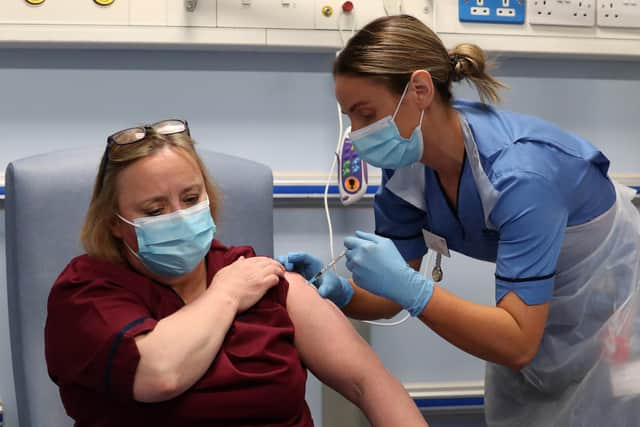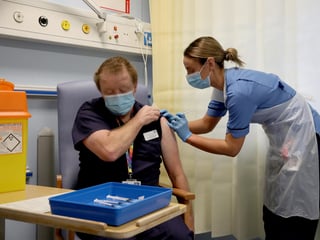Analysis: From fake tears to real hope, first vaccines are not the end of Covid-19
The first people to be given an approved Covid-19 vaccine in Scotland is a huge milestone, and one worth celebrating with all the joy pouring from social media as the first vaccines were announced.
But while the lump in Nicola Sturgeon’s throat and the invisible tears supposedly welling up in Matt Hancock’s eyes are understandable, we are still a very long way off a tangible change to anyone’s lives.
I don’t mean to diminish the awe-inspiring achievement of the scientific community working flat-out for the last nine months to safely develop hundreds of Covid-19 vaccine candidates, or the well-deserved relief of healthcare workers who so desperately want this nightmare to end – we could all use a bit of good news this year.


Advertisement
Hide AdAdvertisement
Hide AdBut over-optimism isn’t very helpful. It raises people’s hopes of a return to normality sooner than is feasible, and it could have very serious consequences, especially over Christmas, if people underestimate the amount of time it will take to get those most vulnerable in Scotland vaccinated and think they may as well ignore Covid-19 restrictions.
On Tuesday morning a woman in her 90s turned up to a hospital in England asking for her Covid-19 vaccine, as she had seen the news of it becoming available.
Elderly people in both England and Scotland could be forgiven for being confused about when they will receive a vaccine, as timelines and priority lists have moved backwards and forwards over the last few days and weeks.
While top NHS figures in England gave titbits of information about the planned rollout throughout November, the Scottish Government refused to be drawn on repeated questions from journalists.
A mountain of information was eventually dropped in an announcement from Health Secretary Jeane Freeman, in which she said that 320,000 doses of the Pfizer BioNTech vaccine would be delivered in the first week of December, one million Scots would be vaccinated by the end of January, and everyone over 18 would be offered a vaccine by the end of Spring.
The announcement sure cheered everyone up, and it was worth the long wait.
But these figures were only ever best-case estimates based on the quickest possible approval and delivery of the vaccine from Pfizer, and many health experts reacted with surprise that the Scottish Government would announce such an ambitious plan.
Sure enough, those numbers were later significantly cut, as manufacturing delays mean the UK will receive a fraction of the 10 million Pfizer doses which were expected before the end of the year.
Advertisement
Hide AdAdvertisement
Hide AdScotland has so far been delivered 65,500 doses, enough for 32,750 people.
Nicola Sturgeon was unable to say in her coronavirus daily briefing on Monday how many people are expected to be vaccinated this week, and while she assured journalists the figures would be made available later, the Scottish Government was unable to give any more information at the end of the day.
Even when the vaccine is given, it takes around a month from the first dose to become fully effective.
National Clinical Director Jason Leitch said on Tuesday he was “trying not to get over-excited”, as Scotland has so little of the drug at the moment.
While the delivery of the first vaccines is brilliant news, the rest of us should follow his example.
